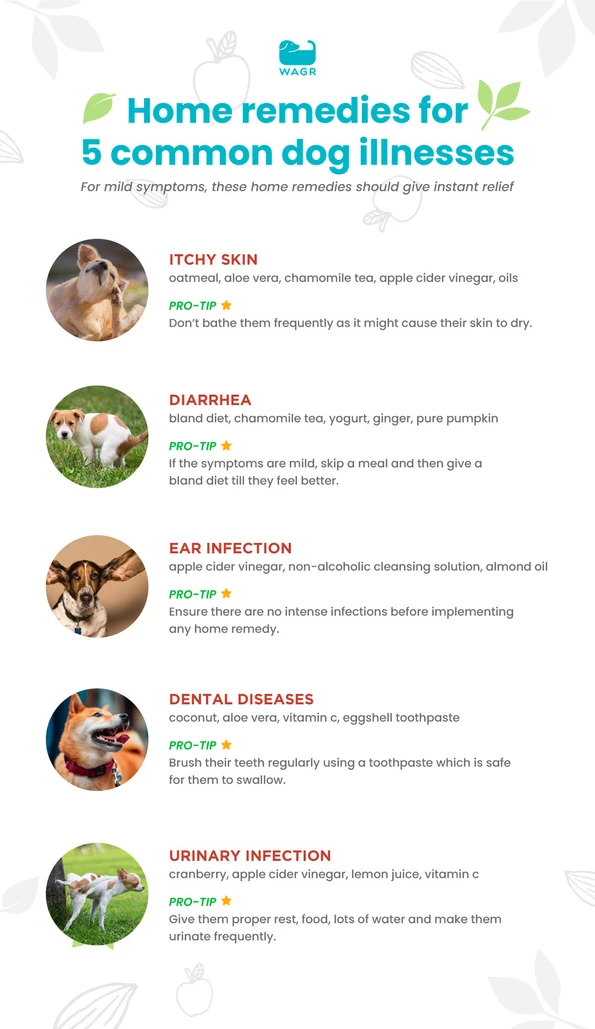As pet owners, we always want what’s best for our furry friends. We shower them with love, attention, and the best possible care. However, just like humans, pets can suffer from common ailments from time to time. While it’s always important to consult a veterinarian for a proper diagnosis and treatment plan, there are also natural remedies that can help alleviate some of the most common pet ailments. In this blog post, I’ll be sharing my personal experiences and some informative insights on natural remedies for our beloved pets.

1. Upset Stomachs:
It’s no secret that our pets have sensitive stomachs and can easily suffer from digestive issues. One natural remedy that has worked wonders for my dog is canned pumpkin. Not only is it packed with fiber, but it also helps soothe upset stomachs. Just a spoonful mixed with their regular food can provide relief and regulate bowel movements.
Additionally, ginger is another powerful ingredient known for its ability to ease nausea and aid digestion. You can try giving your pet small amounts of grated ginger, mixed with their food or in a homemade treat. Just ensure you consult your veterinarian beforehand, as some pets might have sensitivities to certain foods.
2. Skin Irritations:
Skin irritations are common in pets, whether it’s due to allergies, insect bites, or dryness. One natural remedy that has seen success with both dogs and cats is coconut oil. It not only provides relief for dry and itchy skin but also promotes healing. Just apply a small amount to the affected area, but be cautious not to let your pet lick it off as large amounts can cause diarrhea.
Another option is chamomile, known for its soothing and anti-inflammatory properties. You can prepare a chamomile tea rinse by steeping the flower in warm water and then gently applying it to your pet’s skin after it has cooled. However, it’s essential to monitor your pet’s reaction and discontinue use if any adverse effects occur.
3. Anxiety and Stress:
Pets can also suffer from anxiety and stress, especially during thunderstorms, fireworks, or when left alone. One natural remedy that has been a game-changer for my anxious dog is CBD oil. Derived from hemp, CBD oil has calming effects and helps combat anxiety in pets. It’s crucial to ensure you’re using high-quality CBD oil specifically formulated for pets and always follow the recommended dosage.
Another natural remedy to consider is lavender oil. Lavender has a soothing scent known to help calm nerves. You can add a couple of drops of diluted lavender oil to your pet’s bedding or use it in a diffuser to create a calm environment. However, make sure your pet isn’t allergic to lavender by performing a small patch test before full use.
4. Dental Health:
Maintaining good dental hygiene is crucial for our pet’s overall health. Brushing their teeth regularly is the best preventive measure. However, some natural remedies can also aid in keeping their teeth clean. One option is using coconut oil as a toothpaste. Just apply a small amount to your finger or a toothbrush designed for pets and gently brush their teeth. Coconut oil has antibacterial properties that can help fight plaque and improve oral health.
Additionally, consider incorporating fresh, crunchy fruits and vegetables into your pet’s diet. Carrots and apple slices act as natural teeth cleaners and provide a healthy alternative to commercial dental chews.
5. Joint Pain:
As pets age, they may start experiencing joint pain and arthritis. One natural remedy that has shown significant improvement in my senior dog is turmeric. Known for its anti-inflammatory properties, turmeric can help alleviate joint pain and improve mobility. You can mix a small amount of turmeric powder into your pet’s food, but consult your vet to ensure the proper dosage for your pet’s size.
Another option is fish oil, rich in omega-3 fatty acids, which possess anti-inflammatory properties. Adding a fish oil supplement to your pet’s diet can help reduce joint inflammation and ease discomfort over time. Again, consult with your veterinarian before starting any new dietary supplements.
While these natural remedies can be beneficial for common pet ailments, it’s crucial to remember that every pet is different. Always consult with your veterinarian before trying any new remedies to ensure they are safe and appropriate for your furry friend. Our pets rely on us to give them the best care possible, and incorporating natural remedies into their routine can be a great way to enhance their well-being while providing them with a little extra love and attention.

